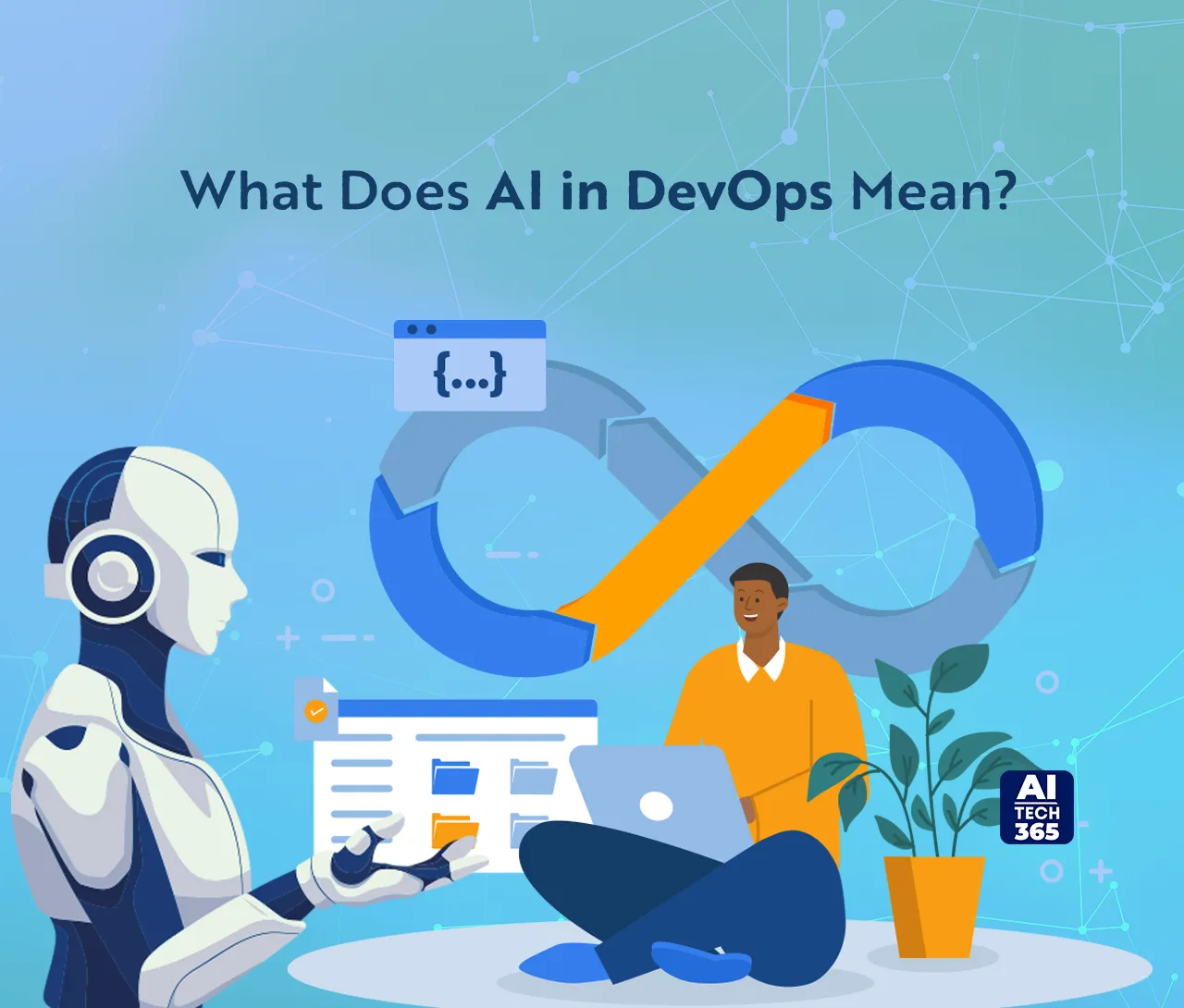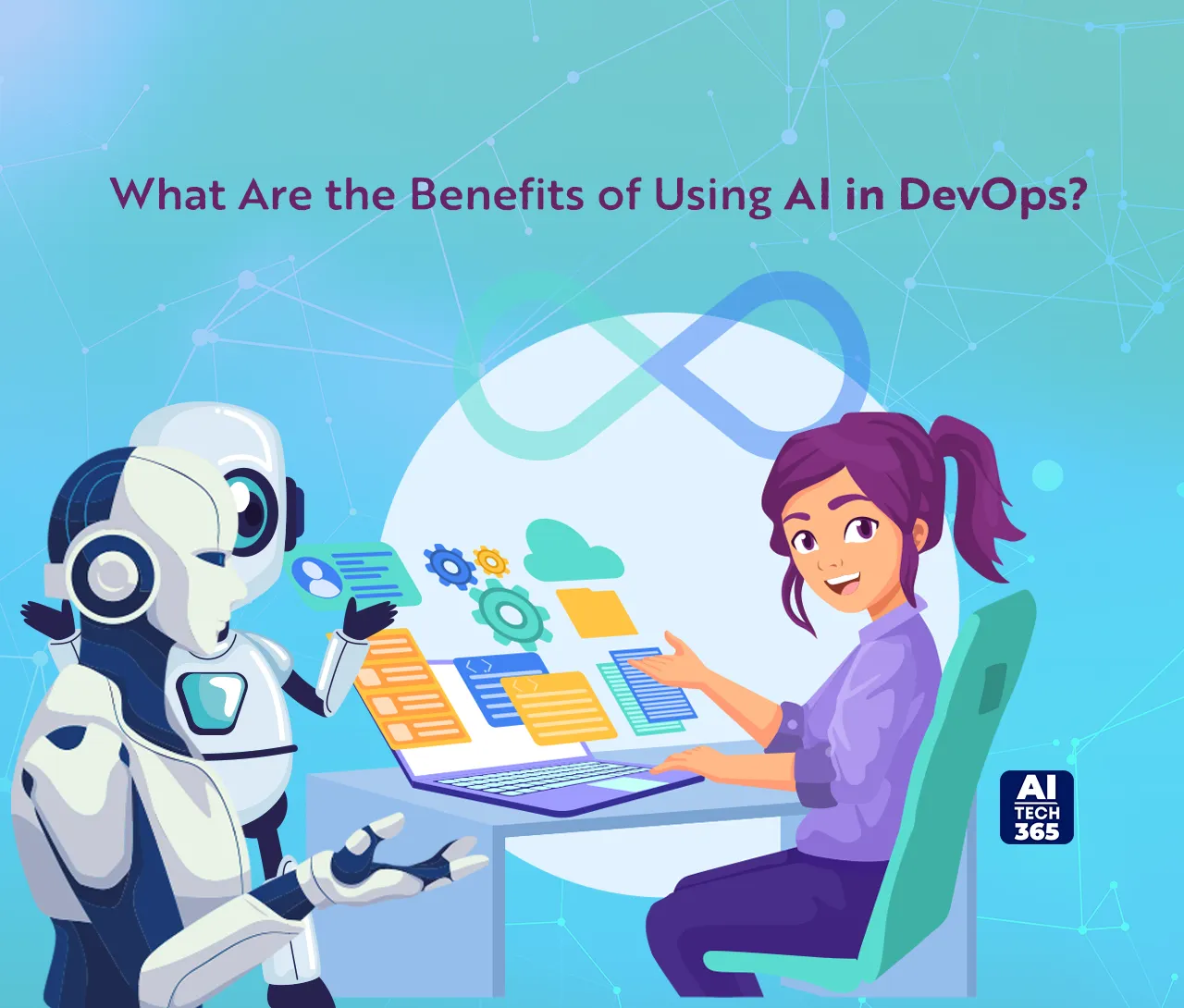In today’s rapidly evolving technology landscape, organizations face the challenge of efficiently managing complex DevOps processes while ensuring continuous delivery, quality, and reliability. Traditional DevOps practices often rely on manual intervention and human decision-making, leading to potential bottlenecks, errors, and inefficiencies. This is where artificial intelligence aka AI in DevOps comes into the picture.
The complexity and scope of modern software provide obstacles for both development and delivery. It is difficult for human-driven processes to anticipate bottlenecks, spot anomalies, and pinpoint performance problems. By utilizing automation, data-driven insights, and machine learning algorithms, AI in DevOps provides a revolutionary solution. This leads to increased software quality, faster deployments, and increased operational efficiency. Let’s learn more about it.
What Does AI in DevOps Mean?
The application of machine learning (ML) and other AI technologies to automate and improve the software development and delivery process is called artificial intelligence (AI) in DevOps. This covers every aspect, from strengthening security and resource management to automating testing and deployment procedures.
By utilizing AI in DevOps, organizations gain from increased software development lifecycle speed, accuracy, and dependability. which eventually results in quicker deployments, fewer mistakes, and higher output all around.
What is Artificial Intelligence?
The term “artificial intelligence” (AI) describes computer system development. These devices carry out tasks meant to mimic human intelligence. They are designed to perform functions like reasoning, learning, and problem-solving. Several industries are implementing AI. Tasks are automated, errors are decreased, and quick, well-informed judgments are made using data analysis.
What is DevOps?
DevOps is a software development approach. It emphasizes collaboration and communication between development and operations teams. The goal is to shorten the development cycle and increase deployment frequency. DevOps aims to deliver products faster and with higher quality. It uses agile methodologies, continuous integration and delivery, and automation to streamline the process.
Also Read: What Are AI APIs? Features, Types, and Working
What Are the Benefits of Using AI in DevOps?
DevOps teams benefit by automating manual tasks. AI-powered solutions improve product quality and system management. Here are the key benefits:
- Increased Efficiency and Speed: AI automates tasks in software development and delivery. This leads to faster project completion with fewer errors.
- Improved Accuracy and Consistency: AI reduces the risk of human error. Automated testing ensures consistent execution throughout the process.
- Better Resource Management: AI optimizes cloud infrastructure use and automates resource allocation. It identifies wasted or underutilized resources.
- Enhanced Security: AI automates threat detection and response. It identifies vulnerabilities early and provides real-time security alerts.
Challenges of AI in DevOps
Integrating artificial intelligence (AI) into DevOps practices brings several challenges. Organizations must navigate these to fully leverage AI technologies. Here are some key challenges:
- Integration Complexity: Integrating AI tools into existing infrastructure and workflows is complex. This is especially true with legacy systems and diverse environments. Seamless integration requires a thorough assessment of existing systems and infrastructure.
- Change Management and Cultural Shift: Adopting AI tools requires a cultural shift within the organization. This includes changes in mindset, processes, and team collaboration. Developing a change management strategy is crucial. It should communicate the benefits of AI tools and address any concerns or resistance.
- Lack of Expertise and Skill Set: Organizations may lack the necessary expertise to implement and operate AI tools effectively. DevOps engineers need a solid understanding of AI principles to manage AI-driven systems successfully. Additional training and education may be required to bridge the skill gap.
- Continuous Learning and Adaptation: AI models require continuous learning and adaptation to remain effective. While beneficial, this presents a challenge. AI systems need to update and evolve continuously to keep up with changing requirements and data patterns.
Are there tools to integrate AI in DevOps?
- Harness: Harness uses AI for continuous monitoring and anomaly detection. It identifies performance issues in real time and provides proactive alerts. Recommendations for remediation improve operational efficiency and reliability.
- ClickUp AI: ClickUp AI offers custom suggestions for developers. It assists with product ideas, roadmaps, document processing, and user stories. Integration with Git tools enhances the software development lifecycle, making continuous integration and delivery more efficient.
- Sysdig: Sysdig is an AI-powered tool that integrates with existing DevOps pipelines and workflows. It automates incident response and provides insights into the health and performance of Atlassian tools. It also offers automated code review capabilities to streamline workflows.
- Amazon DevOps Guru: Amazon DevOps Guru uses machine learning to provide accurate alerts and notifications. It correlates metrics across multiple services, helping teams be proactive. It enforces best practices and provides insights to optimize infrastructure.
Final Takeaway on AI in DevOps
Future developments in technology and trends will have an impact on how AI is applied in DevOps. A few examples include the advancement of increasingly complex AI-driven alerting and monitoring systems, the incorporation of AI into other state-of-the-art technologies like serverless architectures and edge computing, and the expanding use of machine learning models for resource allocation prediction and optimization.
AI will also make it possible for DevOps to adopt new strategies, such as automatically enhancing code quality, optimizing software performance, and even writing code based on high-level requirements or business objectives.





